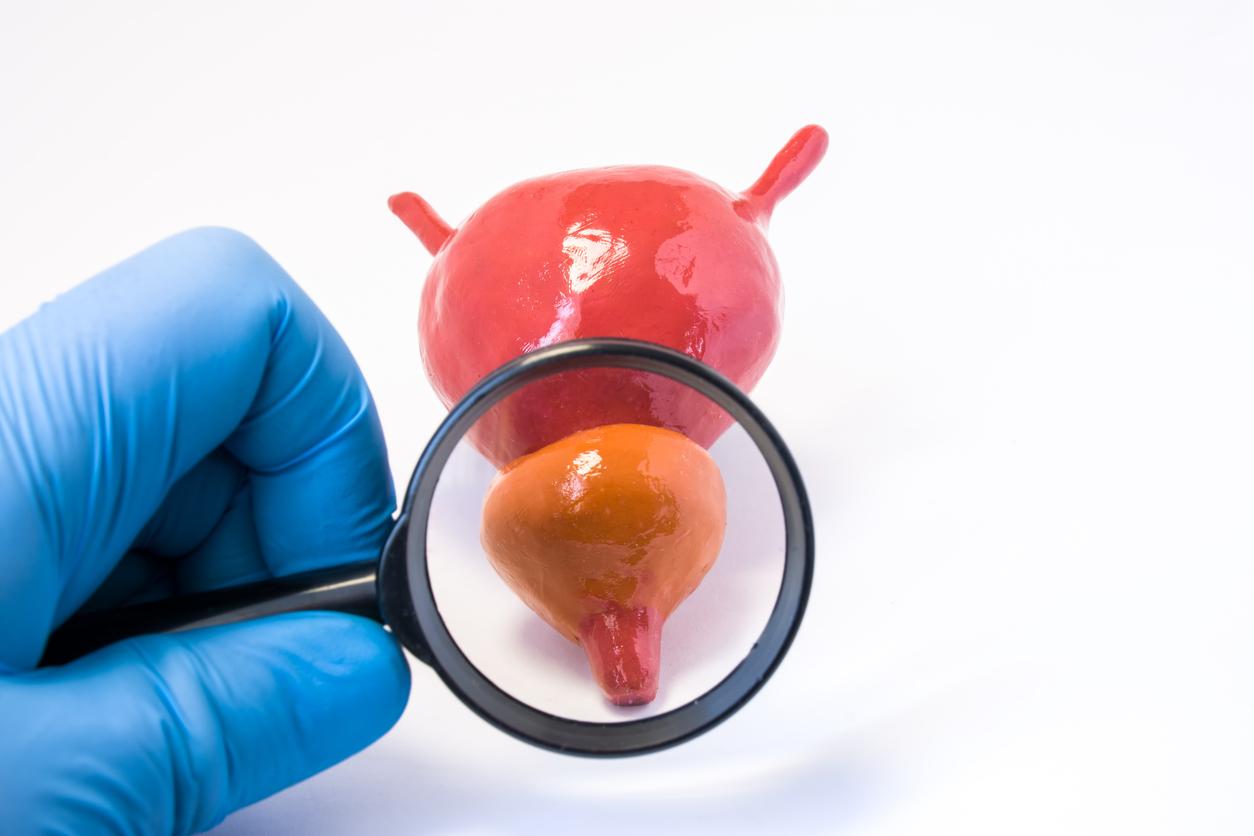Menadione, a precursor of vitamin K, may slow the progression of prostate cancer, according to studies in mice.

- Researchers have found that menadione, a precursor to vitamin K, slows the progression of prostate cancer in mice.
- Unlike antioxidants, this pro-oxidant compound, found naturally in certain green vegetables, deprives cancer cells of a key lipid, PI(3)P, causing them to burst.
- These results pave the way for testing on human patients at the early stage of the disease.
Prostate cancer often grows silently and, although treatable in the majority of cases, it can become aggressive and resistant to therapy. But a recent discovery from the Cold Spring Harbor laboratory (CSHL), in the United States, could well revolutionize the way patients are treated: menadione, a precursor of vitamin K, would slow the progression of the disease, according to studies carried out on mice. This pro-oxidant supplement, present naturally in certain green vegetables, could offer a new therapeutic alternative.
A new process to target cancer cells
The starting point for this discovery dates back to 2001, with the National Cancer Institute’s SELECT study, which tested the effectiveness of vitamin E, an antioxidant, in preventing prostate cancer. After three years, the study was stopped, with results showing that vitamin E not only had no preventive effect, but even appeared to increase the risk of cancer. At the time, CSHL’s Professor Lloyd Trotman wondered whether a pro-oxidant treatment, as opposed to an antioxidant, might work better. And his recent work, published in the journal Scienceseem to confirm this hypothesis.
Trotman’s team discovered that menadione interferes with the metabolism of prostate cancer cells by depleting a lipid molecule, PI(3)P, essential for their survival. This lipid plays a role as an “identification badge” for materials entering cells. Without this signal, cells are overwhelmed and unable to recycle essential nutrients, causing a buildup to the point of cell explosion. “It’s like a transport hub. Without identification of incoming cargo, everything piles up and eventually bursts the cell”explains Professor Trotman in a press release.
Results in mice showed a strong reduction in prostate cancer progression. The team’s goal is now to test the effect of menadione in human patients at the early stage of the disease, in order to slow its progression without immediately resorting to invasive therapies.

Potential applications beyond cancer
That’s not all: Trotman’s research suggests that menadione may also prolong the lives of children with myotubular myopathy, a rare disease that limits muscle growth. In sick mice, menadione doubled their lifespan by reducing PI(3)P, just like in cancer cells.
If the results are confirmed in humans, this discovery could improve the quality of life of many patients, offering not only new options for men suffering from prostate cancer, but also hope for the families of children affected by it. this myopathy.

















